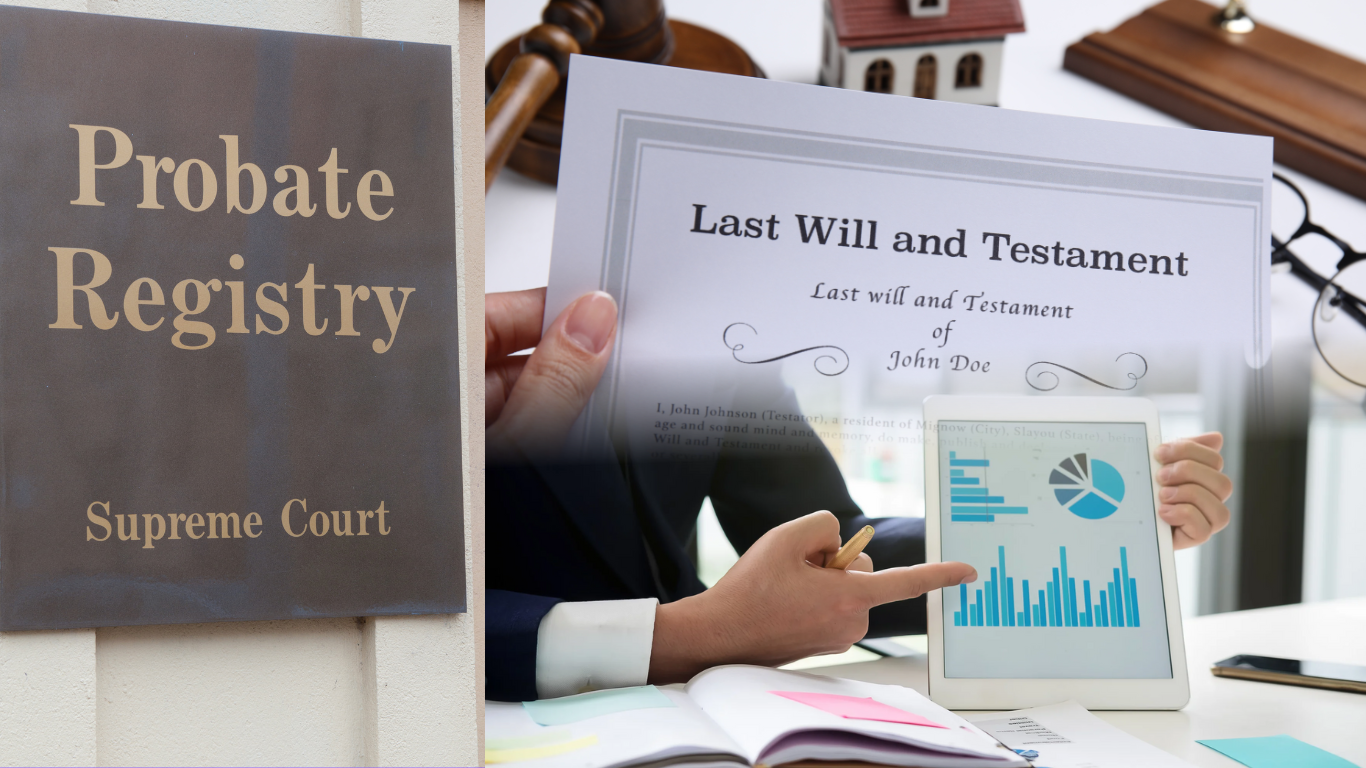By: Ryan Malaluan; Editor: Geram Lompon; Reviewed by: Alvin Villanueva, PMP

Imagine this: Your loved one has passed away, and suddenly, you’re responsible for their various real estate assets. You’re grieving, yet court approvals, legal paperwork, and complex real estate decisions keep piling up. Where do you even begin?
If this sounds overwhelming, you’re not alone. Many executors and heirs struggle with probate real estate—a process that’s often stressful, time-consuming, and financially draining. Missteps in the probate process can lead to delays, disputes, or even a decrease in property value.
But here’s the good news: You don’t have to navigate the legalities of handling the deceased’s assets alone. This guide will help you avoid common mistakes, protect the estate’s value, and make informed decisions—without confusing legal jargon.

What Is Probate Real Estate?
Probate real estate refers to properties that belonged to a deceased person’s estate and must go through a legal process before being sold or transferred to heirs. During probate, the court oversees the distribution of assets, ensuring that debts, taxes, and legal requirements are settled before ownership is officially transferred.
Why You Can’t Skip Probate
Probate isn’t just legal red tape—it plays a crucial role in protecting heirs and ensuring fair property distribution. Here’s why it matters:
- Ensures Fair Distribution of Assets – Probate follows the deceased’s will or, if no will exists, state laws.
- Settles Outstanding Debts and Taxes – Prevents financial burdens from falling on heirs.
- Prevents Fraudulent Property Claims – Ensures rightful ownership and prevents disputes.
But here’s the catch: Probate isn’t always simple. The process can take months—or even years—if mistakes are made along the way, which is why many property owners seek strategies to avoid probate altogether.
The Executor’s Role in Probate Real Estate
As an executor or administrator, your responsibilities include:
— Managing court paperwork and legal filings – Filing the proper documents to move the estate through probate.
— Ensuring the property is properly maintained and insured – Protecting its value throughout all steps involved the process.
— Selling the property (if required) in compliance with probate law – Ensuring all legal steps are followed before listing or transferring the property.
Warning: Without proper guidance, executors often make costly mistakes that cause delays, lost property value, and legal disputes.
7 Common Probate Real Estate Mistakes (And How to Avoid Them)
Managing probate proceedings for real estate is often more complex than executors expect. Legal delays, financial missteps, and family disputes can slow down the process and reduce the estate’s value. But with the right approach, you can avoid common pitfalls and ensure a smooth, profitable probate sale.
Here are the seven biggest mistakes executors make—and how to avoid them.

Delaying the Probate Process
Many executors underestimate how long probate takes. Legal filings, creditor claims, and court approvals must be handled promptly, or you risk accumulating debt, reducing property value, or facing legal penalties.
Avoid It:
- File probate paperwork ASAP with a probate attorney.
- Create a timeline of key probate steps to stay organized.
- Monitor property maintenance and taxes to prevent financial losses.
Failing to Get an Accurate Property Valuation
Did you know that overpricing or underpricing a probate property can cost thousands of dollars? Many executors rely on outdated tax assessments or guess the value, leading to poor sale outcomes.
Avoid It:
- Hire a Certified Probate Real Estate Specialist (CPRES) for an accurate valuation.
- Get a Probate Broker Price Opinion (BPO) to assess fair market value.
- Consider a pre-listing inspection to uncover potential repairs that could impact pricing.

Neglecting Property Maintenance
Probate homes often sit vacant for months, which can lead to damage, vandalism, and insurance issues. A neglected property loses value quickly as is empty, making it harder to sell.
Avoid It:
- Secure the home with new locks and alarm systems.
- Perform routine maintenance (lawn care, plumbing, HVAC checks).
- Keep utilities active to prevent winterization issues and maintain curb appeal.
Selling the Property Without Probate Approval
Many executors rush to sell the deceased person’s assets without getting court authorization, only to have the sale blocked by probate laws. Some states require a court hearing before a probate property can be sold.
Avoid It:
- Understand local probate laws before listing the home.
- Work with a probate attorney to obtain necessary approvals.
- Check for title issues (liens, ownership disputes) before proceeding with the sale.

Choosing the Wrong Real Estate Agent
Not all real estate agents understand probate sales. A regular agent may overlook legal requirements bypass probate only, leading to delayed closings or failed transactions.
Avoid It:
- Hire a Certified Probate Real Estate Specialist (CPRES).
- Ask agents about their probate experience before signing an agreement.
- Ensure they understand court approvals, disclosure rules, and tax implications.
Not Considering Tax Implications
Probate sales can trigger estate taxes, inheritance taxes, and capital gains taxes. Ignoring tax planning can result in unexpected costs for heirs.
Avoid It:
- Consult a tax professional before selling.
- Check for potential capital gains taxes on the property’s increased value.
- Ensure estate taxes are settled before distributing inheritance funds.
Common Heir Mistake: Many heirs assume they can sell an inherited home tax-free. However, if the property has appreciated in value since the original purchase, capital gains tax may apply. Consulting a tax expert can prevent unexpected financial burdens.

Mishandling Beneficiary Disputes
Family members and conflicts over probate real estate can stall the sale and lead to costly legal battles.
Avoid It:
- Keep open communication with heirs about the probate timeline.
- Use mediation services to resolve disputes before they escalate.
- Ensure fair market valuation so all parties agree on the sale price.
Navigating probate real estate can be stressful, but you don’t have to do it alone. Whether you’re an executor, real estate agent experienced an investor, or an heir managing an estate, the right guidance can save you time, money, and legal trouble.

How to Navigate Probate Real Estate Successfully
Navigating probate real estate can be stressful and time-consuming, but staying proactive helps you avoid delays, financial losses, and legal issues. Follow these best practices to protect the estate’s value, minimize estate taxes, and ensure a smooth probate process.
- Work With Professionals – Hire a probate attorney, CPRES agent, and tax advisor to avoid costly mistakes.
- Stay Organized – Track all legal filings, appraisals, and expenses to prevent delays.
- Prioritize Property Care – Maintain the home to preserve its value and avoid neglect-related devaluation.
- Know Your Legal Deadlines – Meet probate court requirements to prevent penalties or legal setbacks.
- Keep Heirs Informed – Maintain clear, transparent communication to reduce conflicts and disputes.
Why Choose Probate by Dean?
Handling probate real estate isn’t just about following legal steps—it’s about minimizing stress, maximizing value, and ensuring a seamless transition. That’s where Probate by Dean stands out.
- Expertise You Can Trust – Dean Higa is a Certified Probate Real Estate Specialist (CPRES) with years of experience in handling probate properties efficiently.
- A Proven Track Record – Clients consistently praise Dean’s ability to simplify the probate process, prevent delays, and secure top-dollar sales.
- Comprehensive Support – From legal coordination to property management, Dean and his team offer full-service solutions tailored to each estate’s unique needs.
- Client Success Stories – Heirs and executors have successfully navigated probate real estate with Dean’s guidance, avoiding costly mistakes and unnecessary stress.
- A Compassionate Approach – Dean understands the emotional weight of probate and is committed to making the process as stress-free as possible.
Your loved one’s legacy deserves the best care. With Probate by Dean, you’re in trusted hands.

Final Thoughts: Make Probate Real Estate Work for You
Navigating probate real estate doesn’t have to be overwhelming. Whether you’re an executor, investor, property owner, or buyer, understanding the legal process, property value, and common mistakes can save you time, money, and stress.
By working with probate specialists, tax professionals, and legal advisors, you can streamline the process and ensure a fair and profitable outcome for the remaining assets.By taking the right steps today, you can navigate the probate real estate process with confidence and avoid costly mistakes. Contact Probate by Dean and move forward with confidence.

